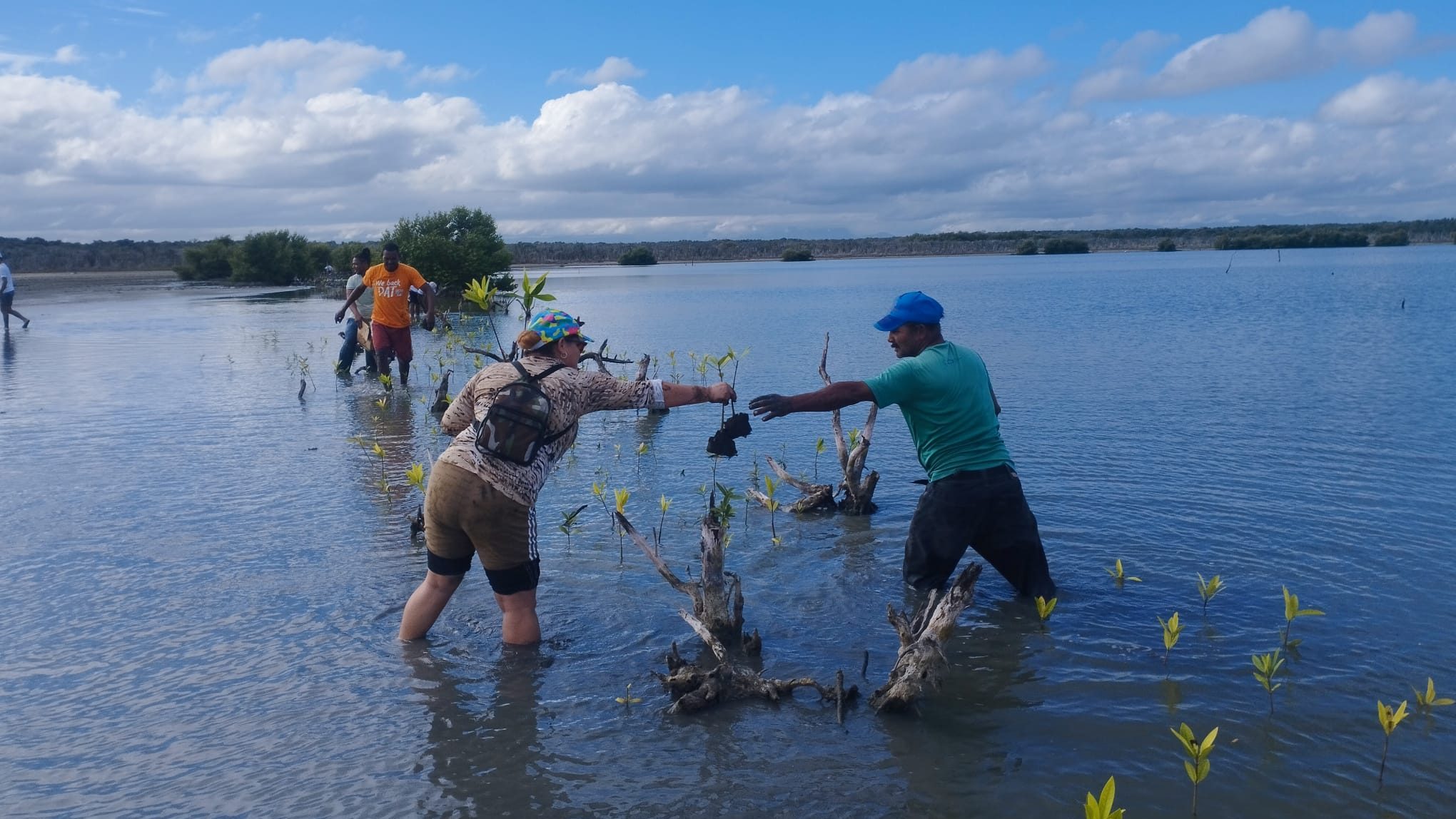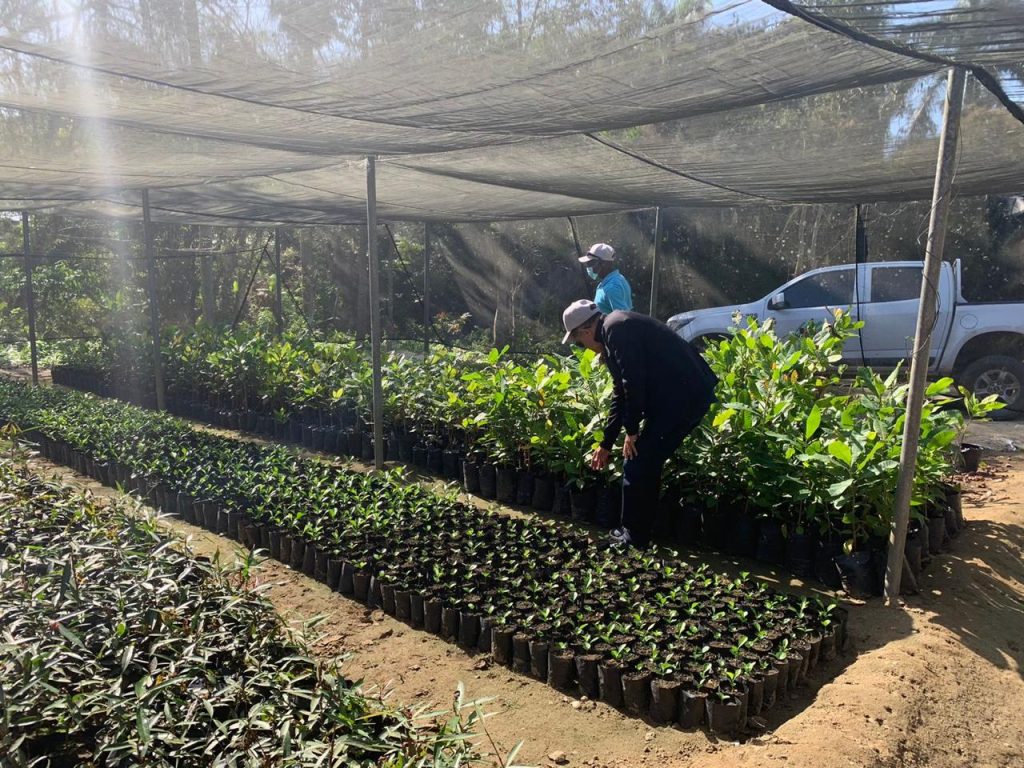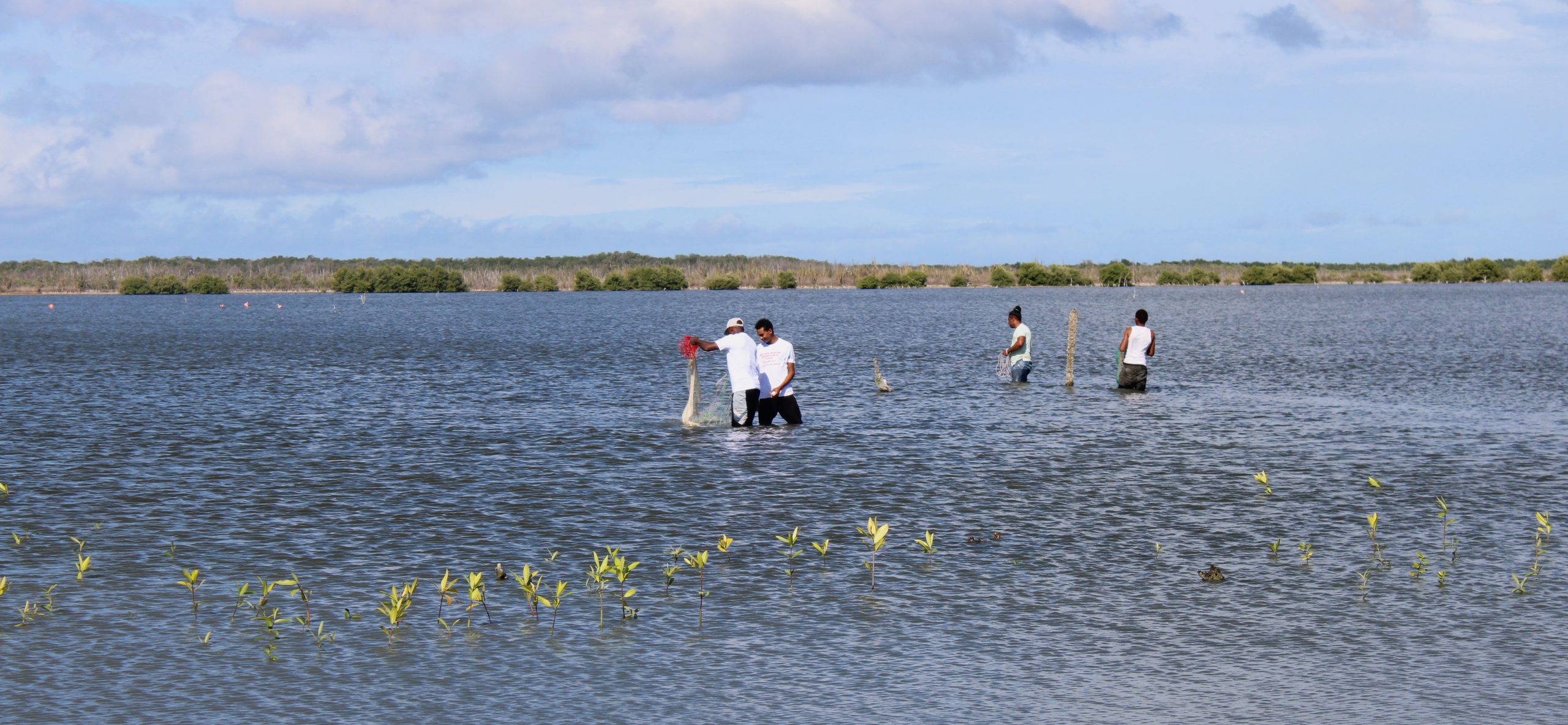- Santo Domingo HQ Office Calle Rosa Duarte #5 Gascue, Distrito nacional, Santo Domingo.
- Dajabón Office At the local branch of DGDF (Direccón General de Desarrollo Fronterizo)
Autopista Manolo Tavarez Justo, Km 4.
Dajabón.
AVSI started working in the Dominican Republic in 2012, with projects on the border with Haiti.
The first interventions were for the protection of Haitian migrants, with a focus on unaccompanied minors, and for the protection of natural areas in the border (Pic Macaya and Nalga de Maco).
In 2021, AVSI obtained official recognition from the Dominican government and opened an office in the capital Santo Domingo and a provincial office in Dajabón. Today, AVSI's main interventions in the Dominican Republic are for environmental protection and mitigation of the impact of climate change, and support for civil society organizations committed to promoting the human rights of the vulnerable population.
On the border with Haiti, supporting migrants and the host community
The Dominican Republic is the nation in the eastern part of the island of Hispaniola. To the west there is Haiti, one of the poorest and most unstable countries in the world.
There are many who are trying to escape Haiti and the cheapest option is to reach the other half of the island where the Dominican Republic extends. Far from being a rich nation, but compared to Haiti the difference is enormous.
Migration to the neighboring state is historical; the different level of development of the two countries and Haiti's severe political and social crisis in recent years, however, have conditioned and incentivized regular and irregular spontaneous migration flows.
According to the latest official data, more than 600,000 Haitians live in the Dominican Republic and represent 5.5% of the population (Encuesta Nacional de Inmigrantes ONE, 2020) Most of them work in cane fields, tourism, construction, doing unskilled jobs but necessary for the Dominican market. They are a fundamental resource for the agriculture and livestock sector, but most of them live in extremely vulnerable conditions.
AVSI's intervention for the protection of Haitian migrants
Since 2018, AVSI has been the reference actor on the Haitian-Dominican border for the strengthening of local organisations involved in the protection and promotion of the human rights of Haitian migrant workers in the Dominican Republic.
Accompanied associations include ASOMILIN (Associacion Solidaria de los Obreros Migrantes de la Linea Noroeste), which provides reception, training, protection and documentary and legal support to migrants settling in the border departments of Dajabón, Montecristi, Santiago Rodriguéz and Mao-Valverde.
AVSI alongside Dominican civil society
In recent years, misinformation, distrust of traditional media and loss of confidence in democratic and governmental institutions have alienated people from active participation in political life in the Dominican Republic. This is why civil society organisations involved in the promotion of human rights are called upon to find new ways to involve citizens, particularly the younger generations, and to find new models of intervention to have a more significant impact.
Nel 2022 AVSI ha avviato il progetto: "Un foro para tod@s: Fortalecimiento y articulación del Foro Ciudadano para la protección y promoción de los Derechos Humanos en República Dominicana" sostenuto dall’Unione europea e implementato in partenariato con il Centro de Investigación y Promoción Social - CIPROS, con l’obiettivo di rafforzare la partecipazione e le iniziative democratiche per la protezione e la promozione dei dritti umani. In particolare AVSI sostiene 50 organizzazioni della società civile membri del Foro Ciudadano di Santo Domingo, una rete che riunisce 400 organizzazioni dominicane impegnate nella difesa e la protezione dei diritti civili, politici, economici e sociali delle fasce di popolazione più vulnerabili.
Environmental protection and socio-economic development with local communities
The Dominican Republic is one of the countries of the Antilles with high biodiversity and a high percentage of endemisms* (*that is, some plant or animal species are exclusive to its territory). The rich biodiversity forms unique ecosystems of high ecological value (Informe Naciónal de Biodiversidad, 2010). Through its projects, AVSI is committed to promoting the conservation of these ecosystems and the protection of the environment, while promoting the development of local and sustainable economic activities.
The Dominican Republic's mangroves: a biodiversity hotspot to protect
The Dominican Republic's mangroves extend for some 258 kilometers and are an extremely important ecosystem for the country's environment and economy: they are vital for marine and river fauna, and are a potential ecotourism hotspot. They also protect the coast from climatic events such as hurricanes and floods; represent an ecosystem with high biomass production; improve water quality through filtration; and contribute to positive climate regulation.
These salt-tolerant forests of trees and shrubs are known for their ability to lock up much higher amounts of atmospheric carbon dioxide than any other terrestrial forest, thus forming some of the most carbon-rich ecosystems on Earth.

AVSI in the province of Montecristi (in the north-west of the country) is implementing the project Modelo inclusivo, participativo y ambientalmente sostenible de gestión de manglares como estrategia de lucha contra la pobreza, to support the reforestation and restoration of a mangrove forest ecosystem and strengthen the productive economy of local communities.
Reforestation in the South and North-West of the Dominican Republic
In the province of Bahoruco (in the south of the Dominican Republic), AVSI is working in synergy with local actors in a reforestation and ecosystem restoration project in the areas bordering (called damping-off zones) the Sierra de Bahoruco National Park. The aim is to decrease the anthropic carbon footprint and regenerate the soil through the planting of native trees of high commercial value and, at the same time, to foster and strengthen the local economic fabric through training and technical assistance to beekeeping families in the communities adjacent to the Park.

The provinces of Dajabón and Santiago Rodriguéz have been suffering for years from strong anthropogenic pressure from deforestation practices and conversion processes to monocultures and grasslands for grazing.
Since 2021, AVSI, together with the company Treedom, has been contributing to their reforestation with plants of high commercial interest such as coffee (Coffea arabica); cocoa (Theobroma cacao); bitter orange (Citrus x arantium); lemon (Citrus limon), thus stimulating sustainable economic activity.










